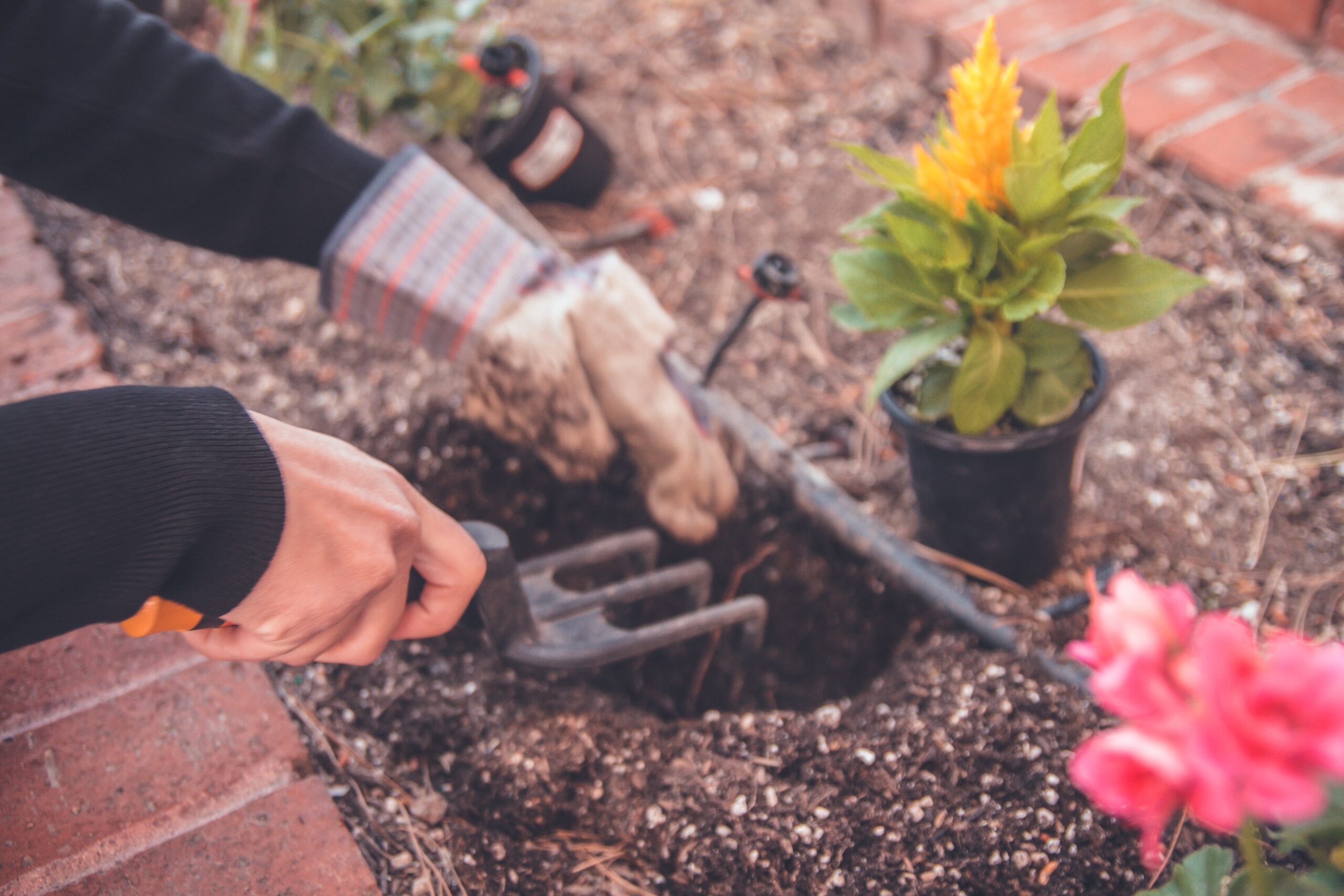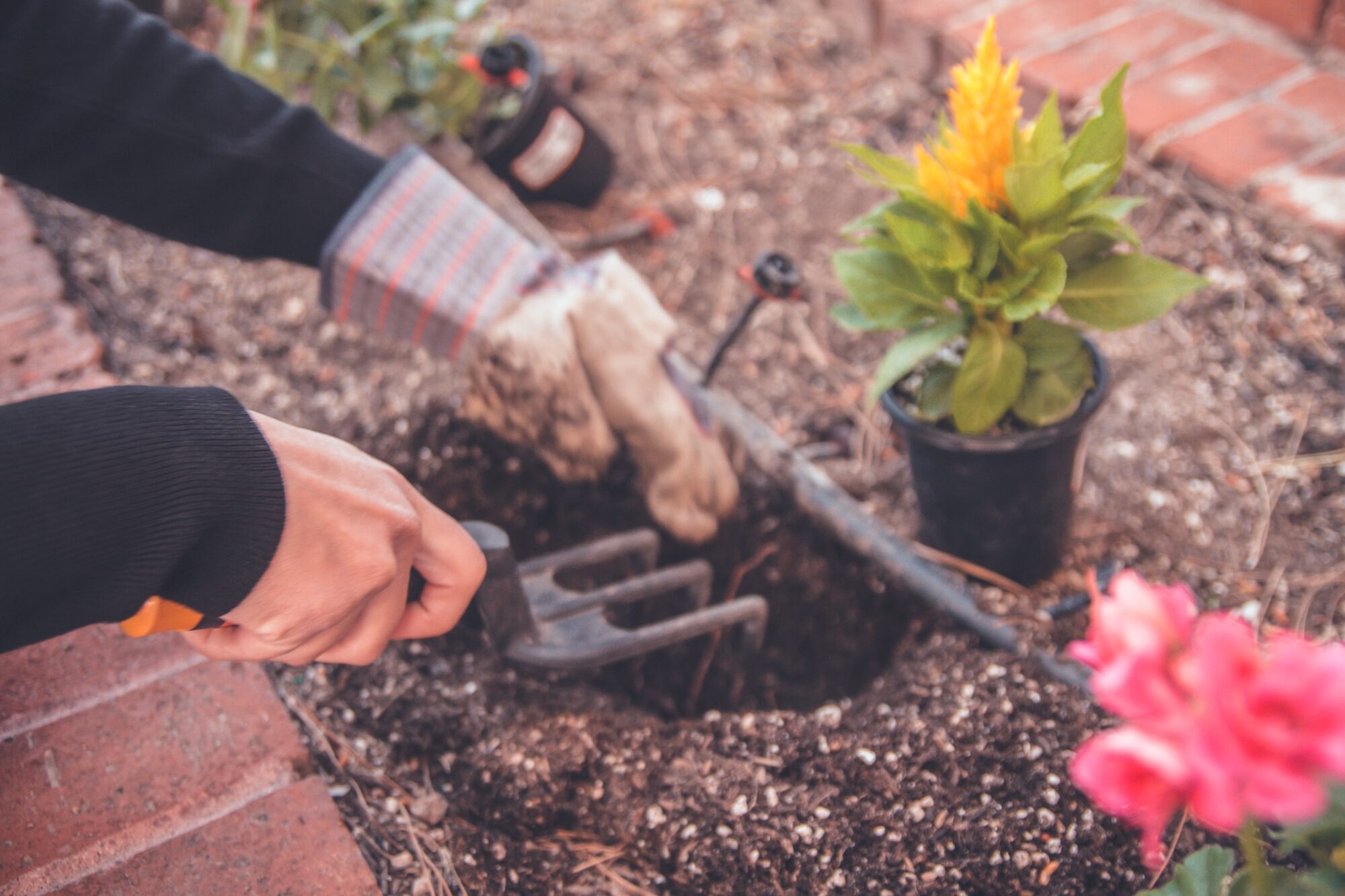
Looking for something you can do right now in quarantine that’ll multiply your ministry after the Conovavirus is gone?
I have a suggestion: Plant a garden.
You probably expected a suggestion like reading systematic theology or taking an online Bible course. And sure, those things are great – but planting a garden will teach you lessons about spiritual growth that you don’t learn out of a book.
There are literally hundreds of references in Scripture to growing and planting – and Genesis begins, you remember, with a garden that Adam was supposed to tend. And many of Jesus’ illustrations presupposed that his hearers would have a frame of reference for planting and growing and tending gardens.

If I were designing a seminary curriculum, I would require the expected courses –original languages, homiletics, church history, theology, etc. – but I would also give all seminarians a small piece of ground that tell them to plant something. They would need to plant, water, weed, fertilize … and get their hands dirty. Then, take care of their garden. And watch. Then respond to what they see, from weeds to aphids to grasshoppers to animals that like to munch on growing things. They wouldn’t need a curriculum – God will provide that as they work their garden.
But just so I don’t keep you needlessly in suspense, let me share some of what God has taught me in our garden. And remember, He may teach you something completely different.
•To begin with, I thought I knew something about gardening. I wouldn’t listen to Debby when she told me how to prepare a hole for planting or when something should go into the ground. I had a zeal for the work and I really wanted to succeed, but my plants died and hers thrived because of my garden arrogance. I had to humbly submit myself as a gardening disciple to her and learn how to grow plants.
What a perfect metaphor for your spiritual life and your ministry. It takes tending to daily.
Ministry is much the same. We can learn from great disciple-makers and teachers. We can learn to pray from prayer warriors and learn to meditate on Scripture from men and women who practice the presence of God through meditating on His Word.
•Gardening teaches you that while planting correctly is important, the really successful gardens are the ones you tend to. The ones you walk around every day, looking at plants, poking your finger in the soil to check the moisture level, looking at the underside of leaves for insects, and pulling weeds.
What a perfect metaphor for your spiritual life and your ministry. It takes tending to daily. It takes watering with the Word, and nurturing through communion with the Lord. You may be able to fill your car with gas and not think about fueling it for a week, but your spiritual life needs your attention daily if it is to flourish. If you are training a new gardener, you remind him to check his garden every day and you ask him how it’s going and what problems and successes he is having. That’s also the way you disciple a Christian who wants to grow in the Lord.
•Gardeners know they must be sensitive to seasons. There is one season to plant, one to fertilize, one to prune, one to protect the plant, one to watch out for infestations of pests. And of course, there’s a season when you just sit down on the ground and enjoy the beauty of your garden.
If you are in a ministry, you know it has seasons too. There are times of great victory and joy, and there are times when it seems like God has removed his blessing from your work. There are times to sit back and watch the growth you have encouraged in others, and times when you need to protect those to whom you minister – from false doctrine, from people who undermine their faith, and from the circumstances that lead to disappointment and discouragement in the Christian life.
•Gardeners realize that they have a lot of responsibility to care for their plants, but ultimately, they cannot make anything grow. Their job is to plant, water, and protect, but they are always amazed by the growth and beauty that results. They didn’t cause that, and they know it.
The most effective evangelist never caused another person to become a Christian. The most dedicated disciple-maker never caused a young Christian to grow. In fact, we call the qualities we hope to see in those to whom we minister the “fruit” of their yieldedness to the Holy Spirit. We have tended and watered and weeded, but it is the Spirit who produces the fruit. It’s our job to be faithful and obedient, but to realize that the results always come from God, not us.
•Gardeners do more than help things grow – they also stop some things from growing: weeds. Weeds are deceptive. We never plant them, but they always show up – and sometimes they grow so quickly that they are as large as our plants almost overnight. And before you know it they are choking out your veggies, herbs, and flowers, stealing water and nutrients, and reproducing. Gardeners realize that part of tending the garden daily is looking for and uprooting weeds – and when we don’t go into our garden for several days the weeds can almost take over.
We have tended and watered and weeded, but it is the Spirit who produces the fruit.
Spiritually, weeds can represent anything that chokes out and robs the plant – sin certainly, but also the cares of the world and the pleasures of this life. If we are ministering in the name of Jesus, we have to be careful to get rid of the weeds in our own life and help the ones to whom we’re ministering identify the weeds that are growing up next to them. Young believers may not be able to identify the weeds because they look so much like the real thing.
•Gardeners know that they have to do more than plant, fertilize, and water. There are also times when you must prune. The experts at gardening centers tell me that pruning questions are some of the most frequent – most of us hesitate at first to cut back a flower or a bush because we’re afraid we might kill it. But master gardeners tell us that pruning is necessary for growth. We prune plants to remove crossed, damaged or diseased branches which will stress the plant. Pruning also improves air flow through the plant and encourages better branch distribution — resulting in a healthier, more vigorous and disease-tolerant plant.
I think gardeners have a real insight into John 15, where Jesus uses a gardener analogy to explain that he is the vine and we are the branches. The divine gardener prunes every branch that bears fruit – to make it more fruitful. That pruning can be painful, but we realize that God knows what he is doing and what seems painful now will result in a later increase in our fruitfulness. Remember when Joseph was “pruned”? He was sold into slavery by his brothers and ended up a servant in Egypt. When God blessed him so that he rose to a position of increasing responsibility, his boss’ wife lied about him and had him thrown into prison. But God blessed him again and he rose to become the prime minister of Egypt. When his brothers ended up before him, afraid he would kill them for what they had done, Joseph showed that he understood that the pruning in his life had been superintended by God. He told them: “You intended to harm me, but God intended it for good….” (Genesis 50:20, NIV).
•I got involved in gardening about 10 years ago, because I had a job that kept me at a desk many hours a week. I wore a tie and attended way too many boring meetings and spent a lot of time studying reports and spreadsheets. I needed to go outside, take my shirt off, and get my hands in dirt. I needed to sweat. Gardening is an essentially solitary activity. Even if other people are nearby, gardeners are in their own world. It’s just you, the sun, the dirt, and the plants.
And, of course, God. Digging and weeding and pruning are great times to pray, to think, and to listen to God. There is precious little time in our world where we’re not plugged in to some kind of media. Gardening can be one of those times – and God will use your garden and teach you all kinds of lessons.
So buy some plants and start digging. And be prepared to learn a lot about gardening – and about yourself and your ministry.
